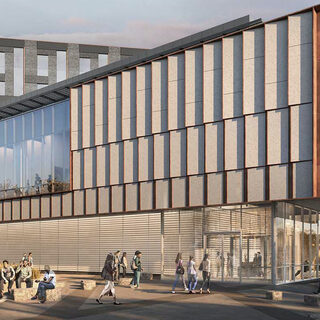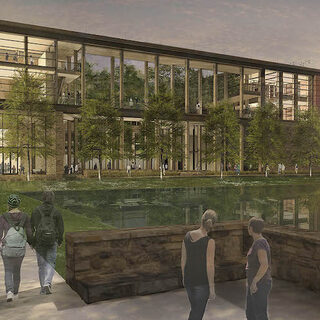
Brightspot Strategy

In the News
Carnegie Mellon Breaks Ground on Richard King Mellon Hall of Sciences
Carnegie Mellon University broke ground in early 2024 on the $252 million Richard King Mellon Hall of Sciences in Pittsburgh. Designed by ZGF Architects and R3A Architecture, the 338,900-sf complex will advance a new era of data-driven research, cross-disciplinary education, and creative expression. The transformative development will collocate the College of Science and the School of Computer Science with the Institute for Contemporary Art Pittsburgh in a prominent city intersection to foster connections with the local community.
University of Virginia Builds Contemplative Commons
The University of Virginia is building the $67.1 million Contemplative Commons in Charlottesville. Integrating academic, research, and social functions, the 57,000-sf facility will feature flexible learning studios that can be configured for group instruction, quiet reflection, physical activity, or informal interaction. During the day, the three-story structure will accommodate classes for the entire university community, while acting as an event venue and gathering hub on evenings and weekends.


